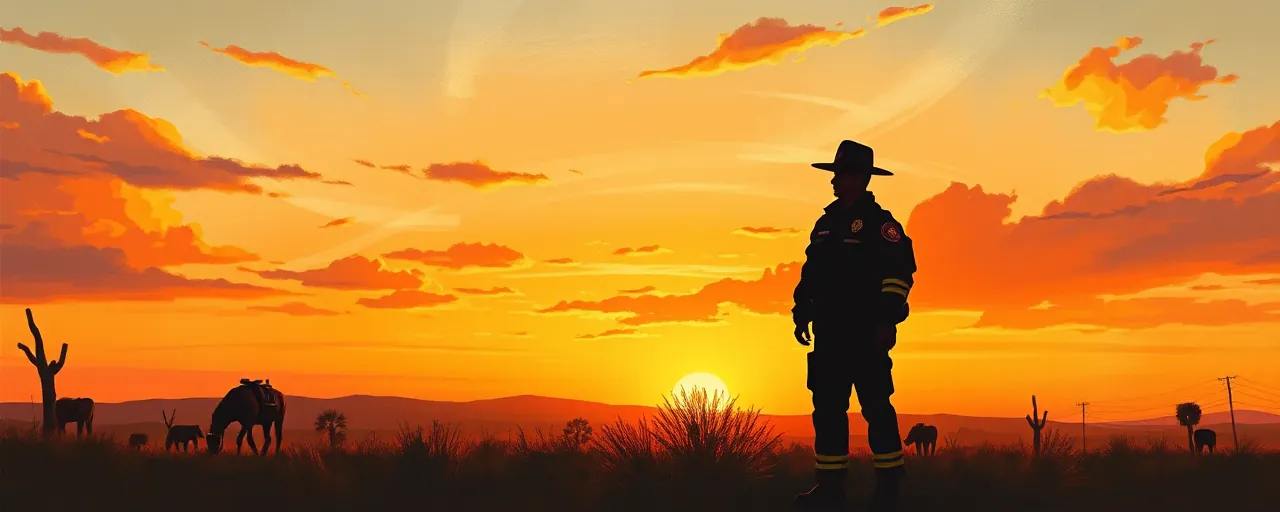A Call to Honor the Brave
Every day, peace officers, firefighters, and emergency medical workers step into the unknown to protect their communities. In Texas, their sacrifices aren’t forgotten. Governor Greg Abbott announced today, April 10, 2025, that nominations for the 2025 Star of Texas Awards are now open, shining a spotlight on those seriously injured or killed in the line of duty. It’s a moment to pause and recognize the human cost behind the uniforms, a cost that’s been climbing in recent years.
The awards, launched over two decades ago, carry a weighty purpose. They’re not just about medals or ceremonies; they’re a public nod to the grit and resolve of first responders who’ve faced the worst and kept going, or didn’t make it home. This year, the nomination window runs until June 13, giving families, colleagues, and communities time to put forward names of those who’ve paid a steep price for their service.
Who Qualifies and Why It Matters
Eligibility stretches back to September 1, 2003, covering incidents where first responders or federal law enforcement officers were gravely hurt or lost their lives while on duty. It’s a broad net, intentionally so, capturing decades of service and sacrifice. But there’s a twist: private citizens who stepped in to help these responders, and suffered serious injury or death as a result, can also be nominated. That inclusion speaks volumes about the ripple effect of courage in emergencies.
Data backs up the urgency of this recognition. In 2024, law enforcement deaths jumped 25%, with traffic accidents spiking by nearly half. Firefighters aren’t faring much better; heart attacks and vehicle crashes claimed dozens of lives in 2022 alone. These aren’t just numbers, they’re a stark reminder of the stakes. The Star of Texas Awards offer a way to say their efforts aren’t invisible, even as the risks they face evolve.
Beyond the Badge: Hidden Struggles
Physical danger isn’t the only toll. Mental health weighs heavily on first responders, with PTSD and depression rates soaring. Research from New York State shows over half of these workers grapple with intense stress, yet many stay silent, held back by stigma. Suicide, often with firearms, now outpaces some traditional line-of-duty deaths, a grim trend that’s been building for years. It’s a side of heroism that doesn’t make headlines but cuts just as deep.
Support is growing, though. Peer groups and therapies like Cognitive Behavioral Therapy are gaining traction, offering a lifeline to those wrestling with trauma. Advocates for first responder wellness argue recognition alone isn’t enough; real change means tackling these invisible wounds head-on. The awards, while a tribute, also spark conversations about what these workers need to keep going.
Citizens Step Up, Communities Respond
The role of ordinary people in emergencies adds another layer. From the Boston Marathon bombing in 2013 to Hurricane Harvey in 2017, civilians have jumped in when seconds mattered, sometimes at great personal cost. Texas acknowledges this through the awards, but it’s part of a bigger shift. Community responder programs are popping up nationwide, training people to assist in crises alongside professionals, easing the load on stretched-thin services.
Other states echo this appreciation. Vancouver’s fire department recently handed out 19 awards to firefighters and residents alike for daring rescues. Nationally, groups like the Volunteer Fire Council celebrate standout service. These efforts show a shared understanding: it’s not just the pros who hold the line, it’s the people beside them too.
Looking Back, Moving Forward
The Star of Texas Awards sit within a long tradition of honoring first responders. National First Responders Day, set on October 28 after years of advocacy, grew out of losses like the death of officer Sean Collier in 2013. Locally, California’s firefighters have been earning valor medals since the 1960s. These moments of recognition stitch together a history of gratitude, one that Texas builds on with each nomination.
What’s next feels pressing. Rising deaths, mental health crises, and citizen involvement point to a system under strain but also ripe for rethink. The awards don’t solve those challenges, yet they do something vital: they keep the conversation alive. They remind everyone that behind the stats and stories are real people, risking it all, day after day.
